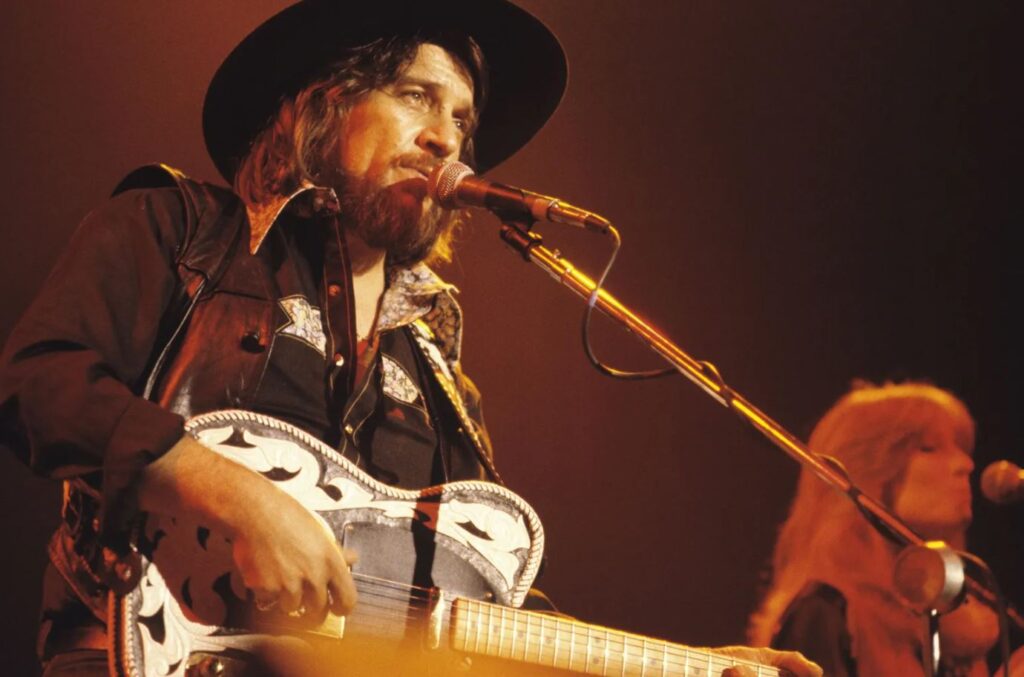
When it comes to country music, few voices carry the weight of honesty, grit, and raw emotion quite like Waylon Jennings. In 1968, Jennings delivered a performance that still lingers in the hearts of fans today—his unforgettable take on “Mental Revenge.” Written by the legendary Mel Tillis, the song became a defining moment in Jennings’ career, blending heartbreak with defiance in a way that felt both deeply personal and universally relatable.
The Story Behind Mental Revenge
At first glance, “Mental Revenge” might sound like another heartbreak ballad. But a closer listen reveals something far more intriguing. Unlike the typical tear-soaked country songs of the time, Jennings doesn’t beg, plead, or wallow in sorrow. Instead, he takes a sharp turn, embracing quiet vengeance—wishing emotional pain on the one who left him behind.
It’s not fiery anger or shouting rage. It’s the kind of controlled bitterness that cuts deeper because it feels so real. Jennings’ delivery makes every word sting, leaving the listener not just hearing the song, but feeling the weight of its truth.
A Musical Arrangement That Matches the Mood
The beauty of Jennings’ version of “Mental Revenge” lies not only in the lyrics, but also in its musical arrangement. With a honky-tonk flavor and a loping rhythm section, the song captures the classic country sound while hinting at something more rebellious beneath the surface.
The rhythm keeps the track steady, almost calm, but beneath that calmness lies an edge—a sense of toughness that mirrors the narrator’s simmering emotions. It’s a perfect marriage of sound and storytelling.
A Glimpse of Waylon’s Outlaw Spirit
By the late 1960s, Jennings was growing restless with the polished, heavily produced “Nashville sound.” He longed for something grittier, more authentic, and more in line with his own rebellious spirit.
“Mental Revenge” became an early signpost on that journey. While it wasn’t fully “outlaw country” yet, the song revealed Jennings’ desire to push boundaries. Instead of sticking to safe emotional tropes, he dared to bring emotional complexity, grit, and quiet defiance into the spotlight.
This wasn’t just a song—it was a statement of identity. Jennings showed the world that he wasn’t here to sugarcoat feelings. He was here to sing about life the way it truly felt: messy, painful, and sometimes tinged with bitterness.
Why Mental Revenge Still Resonates
More than five decades later, “Mental Revenge” continues to strike a chord with listeners. It speaks to a universal truth: sometimes the pain of heartbreak doesn’t dissolve into forgiveness—it lingers, transforming into something sharper.
Jennings didn’t offer closure. He offered survival. He gave listeners permission to embrace their hurt, to hold on to a little vengeance in their back pocket, and to keep moving forward with strength.
Final Thoughts
Waylon Jennings’ “Mental Revenge” is far more than a country song—it’s a lesson in emotional honesty. With Mel Tillis’ words and Jennings’ powerful delivery, the track became a defining moment in country music history. It captured the delicate balance between hurt and strength, sorrow and defiance, pain and survival.
For Jennings, it was a step toward the outlaw legend he would later become. For fans, it remains a timeless reminder that even in heartbreak, there is power—and sometimes, just sometimes, bitterness blooms into strength.
